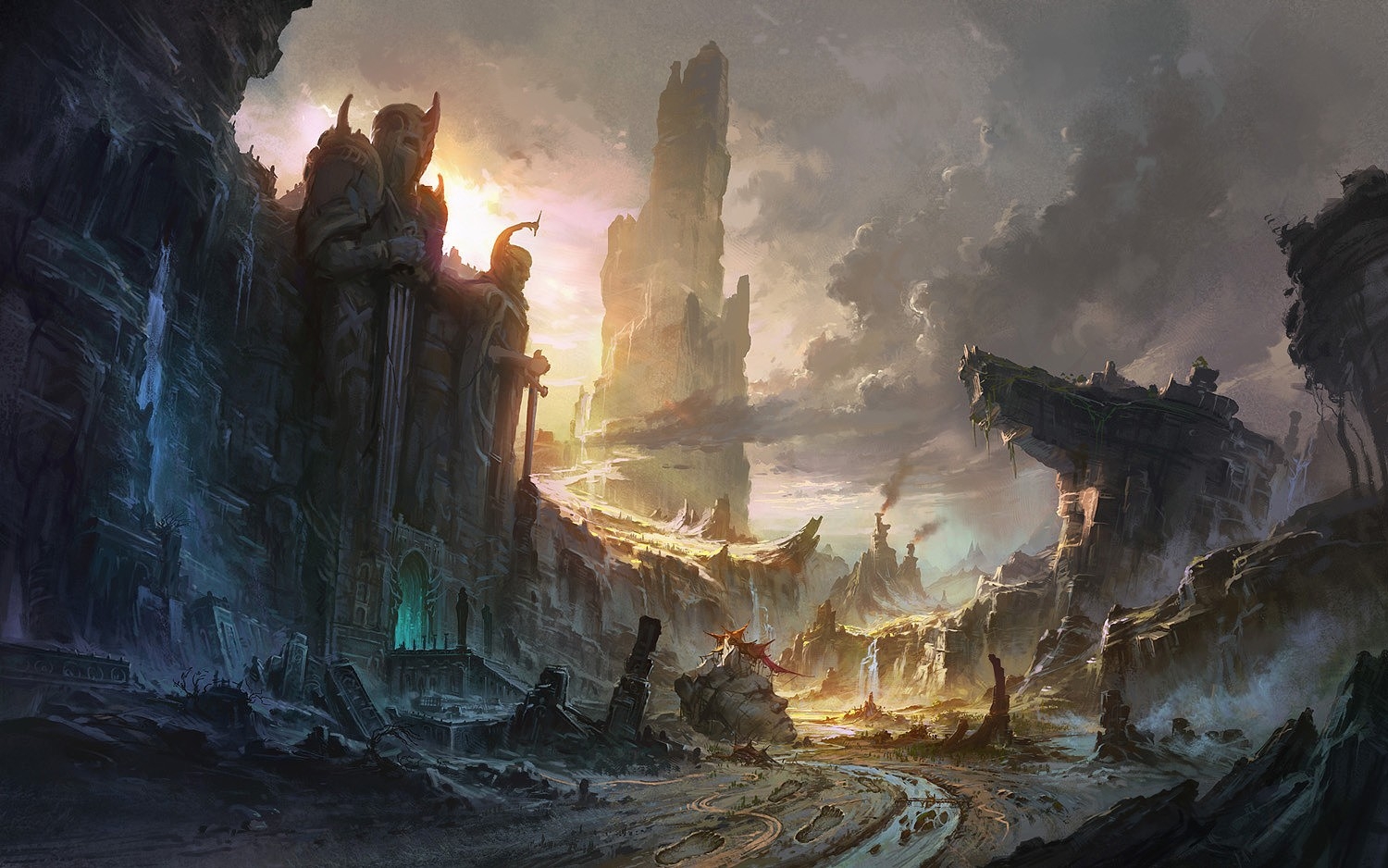Mother Dakhana's Curse
According to legend, to spite her lover, Mother Dakhana cursed Father Gundyr's children, the giants to give birth to their antithesis, the Dwarven peoples. This legends is spoken of proudly by the Dwarves, and in opposition to their oversized kin.
Summary
Mother Dakhana sought the courtship of Father Gundyr in the time before the first dawn. He was one of the oldest and most respected of the gods, having brought his children, the giants to help sculpt and shape the earth alongside the gods in those earliest of years. She was, however, only a goddess of Crafting, thereby given respect for her domain, but never placed higher than most other gods and goddesses. According to the Dwarves, without craft, there can be no other domain. The world was crafted once, giving way for life, death, war, and all the rest to come into being.
Mother Dakhana did not let the perception of herself stall her advances. She sought out Father Gundyr and presented to him a number of gifts for both him and his kin. For him, she crafted a heavy crown, which anointed him as Father and King of his dominion, unopposed, and unchallenged. For his kin, she crafted each a trinket that would succeed their lines as the most sacred of heirlooms. For the Giants of the hills, she crafted a great chain that could hold any beast at bay. For the Giants of the mountains, she crafted the great Calling Bell Sundaka, it's tones would awaken the very roots of the mountains and reveal their riches to them. For the giants of the frozen lands, she crafted a mantle of mithril and dense fur so that the wearer would never know cold. For the Giants of Fire, she forged the great Forge of Dulchast, whose flames would never go out, so long as there was need of them. For the Giants of the clouds, she crafted the spyglass Eclestium, so that they could watch the world high above in their floating cities and never be left unawares. Lastly, for the giants of the storms, she crafted the great ship Halmurdo, which would never be shaken off course, even in the most brutal of storms.
All these things she did for Father Gundyr and his children, showing her own vulnerability and willingness to welcome his kin as her own. All these things she gave of herself after many tireless nights of work. All these things could not hold Gundyr's attention for long, though his children did revere these most generous gifts of the Mother. Father Gundyr rejected Dakhana's advances, but kept the gift regardless. It is unclear which was the greater slight, but the Mother would not be cast aside so easily. Before the two parted for the final time, Mother Dakhana cursed the Father's children, knowing that would cut deeper than a curse upon himself.
"The next children, yours shall bear shall be their reflection in pools of water." the Mother cursed him. And sure enough, her words took root in the Weave and the next children the giants bore were stunted and stout. They would later be called the Dwakar, or Dwarves, meaning stout.
Historical Basis
Though the artifacts spoken of as having been crafted by Mother Dakhana have been recorded to exist, the only through line for modern scholars to weigh the validity of this myth is the fact that for every giant breed, there is an equal and opposite breed of Dwarf. Additionally, the Giants are recorded to have kept their Dwarven bretheren as slaves in earlier eras at times, until they saw how the Dragons treated their Dragonborn kin and decided they did not want to be compared to their most bitterest of rivals, thereby emancipating the Dwarves generations prior to the first Dragonborn uprising.
Variations & Mutation
Some accounts of the tale do not attribute Mother Dakhana to have created gifts for both Father Gundyr and his children, rather, she made them all for him and he, seeing fit to bestow them to his sons, did so without her consent, thereby incurring her wrathful curse. These claims have been disputed however, as Father Gundyr has always been depicted as a neglectful father, so the idea that he would bestow gifts upon his sons and not expect anything in return or without cost is highly unlikely.
Related Species


